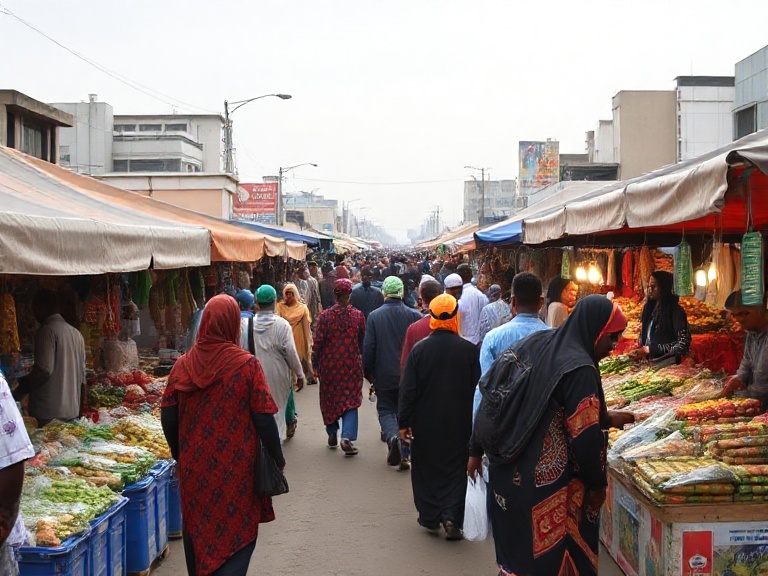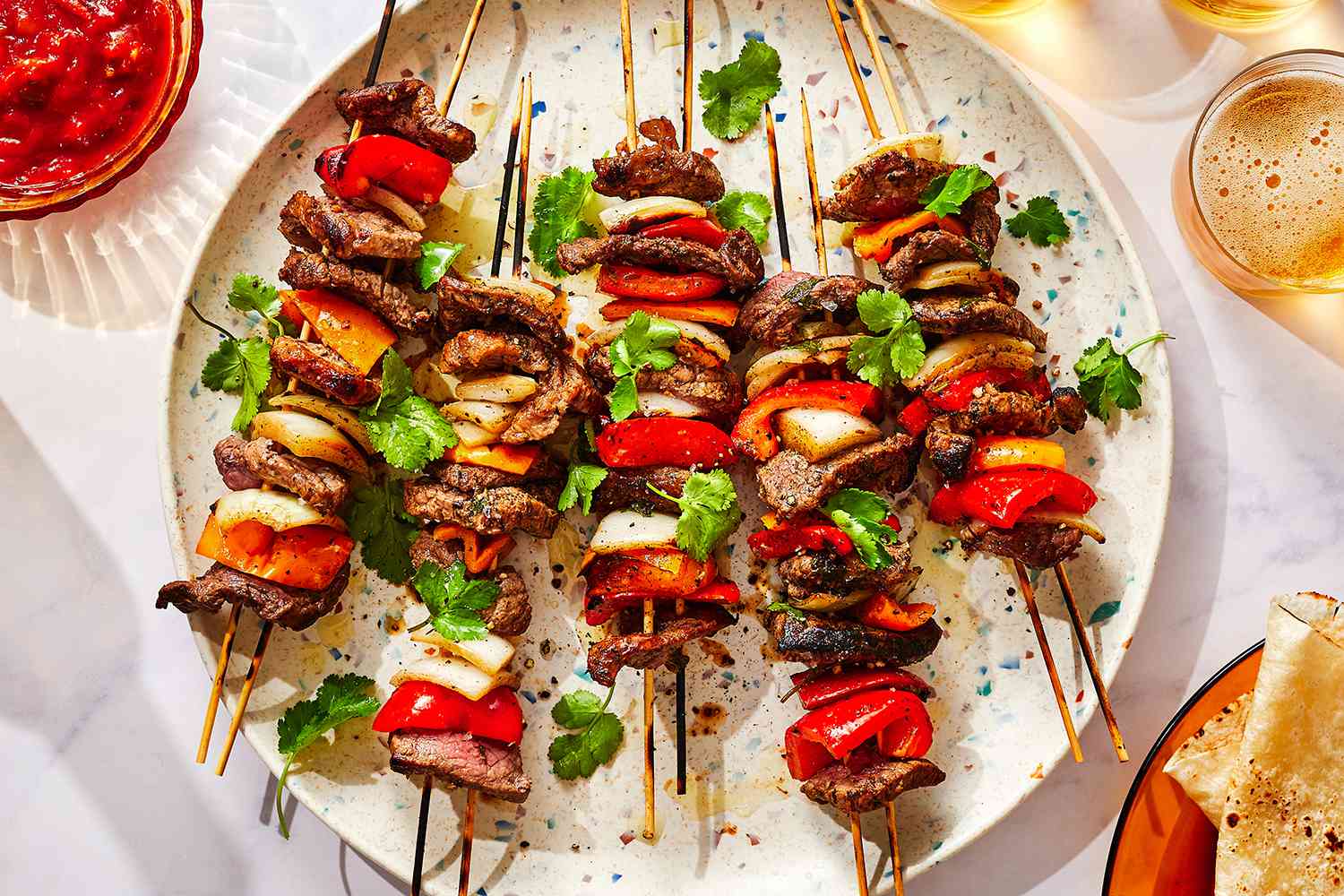Budget Eats: 12 Delicious Meals in Abuja Under ₦1,500
Hussein - AbujaEats
Food Writer & Critic
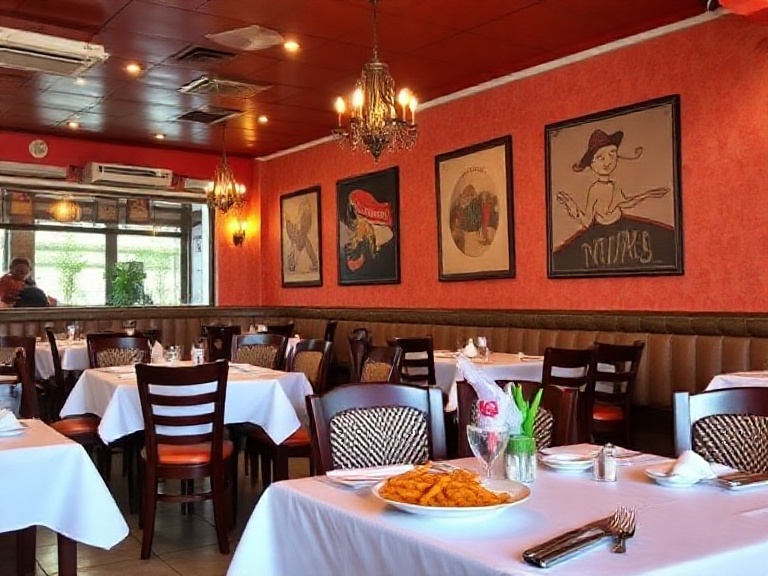
Eating well in Abuja doesn't require a hefty budget. The capital offers numerous options for satisfying, delicious meals under ₦1,500—you just need to know where to look and what to order. This guide reveals the best budget-friendly meals across Abuja, along with strategies for maximizing value without sacrificing quality or taste.
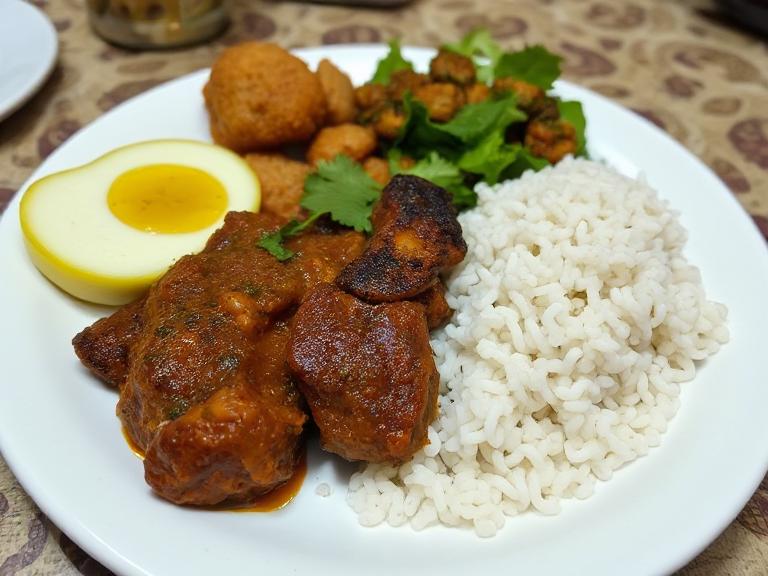
1. Akara and Pap Breakfast (₦500-₦800)
Start your day with this classic Nigerian breakfast combination. Fresh akara (bean cakes) paired with pap (ogi) and bread provides filling nutrition at unbeatable prices.
Where to Find It: Morning vendors throughout Gwarinpa, Garki, and residential areas of Wuse 1. Look for women frying akara fresh from around 6:30 AM.
Why It's Great: Hot, fresh, and prepared to order. The protein from beans keeps you satisfied until lunch.
Pro Tip: Arrive early (before 8 AM) for the freshest akara. Ask for extra pepper if you like heat.
2. Amala and Ewedu (₦1,000-₦1,400)
This Yoruba staple offers incredible value—a full plate of amala (yam flour swallow) with ewedu soup, often including meat or fish.
Where to Find It: Amala spots in Garki, Gwarinpa, and around markets. Amala Central in CBD offers quality versions slightly above budget but worth it.
Why It's Great: Filling, nutritious, and authentically prepared. One plate satisfies for hours.
Pro Tip: Lunch hours (12-2 PM) guarantee freshest preparations. Specify your preferred meat type.
3. Jollof Rice with Chicken (₦1,200-₦1,500)
Nigeria's beloved dish remains accessible at budget-friendly spots. A generous portion of jollof rice with fried chicken fits comfortably under ₦1,500.
Where to Find It: Local restaurants in Gwarinpa, Garki, and Wuse 1. Avoid upscale areas where prices inflate.
Why It's Great: Satisfying, familiar, and available everywhere. Hard to go wrong with good jollof.
Pro Tip: Ask if they have "special jollof" or "party jollof"—often the same price but better flavor.
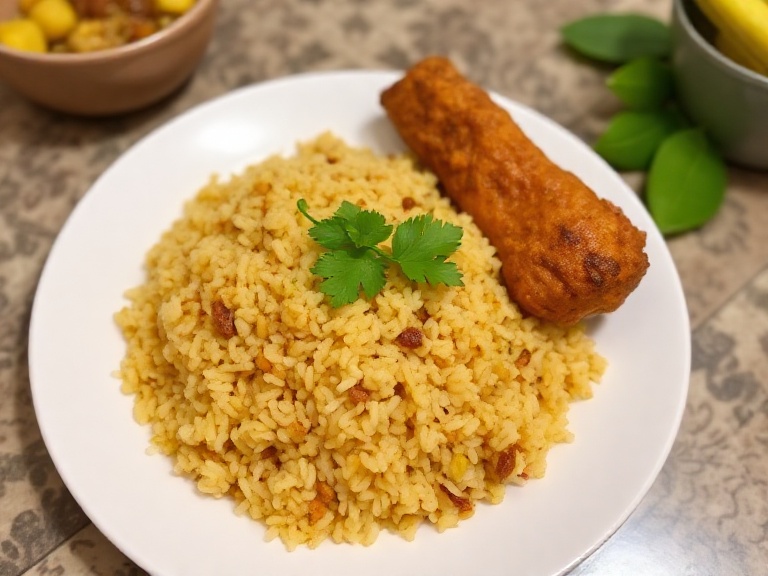
4. Fried Rice and Plantain (₦1,000-₦1,400)
Nigerian fried rice with sweet plantains offers excellent value, especially at neighborhood restaurants catering to regular customers.
Where to Find It: Gwarinpa restaurants, Garki eateries, and Mama Put establishments throughout Abuja.
Why It's Great: Vegetables add nutrition, rice provides energy, plantains add natural sweetness. Complete meal in one plate.
Pro Tip: Lunch specials often include drinks. Ask about combo deals.
5. Indomie Special (₦800-₦1,200)
Don't underestimate Nigerian-style Indomie. When prepared properly with eggs, vegetables, and protein, it becomes a satisfying meal.
Where to Find It: Evening food spots, university area eateries, and late-night vendors. Gwarinpa has numerous Indomie specialists.
Why It's Great: Quick, customizable, and surprisingly filling. Perfect for late-night cravings.
Pro Tip: Request "special" preparation with eggs and vegetables. Add extra protein for ₦200-₦300 more.
6. Beans and Plantain (₦800-₦1,200)
This combination provides excellent nutrition at minimal cost. Protein-rich beans with sweet plantains create a balanced, satisfying meal.
Where to Find It: Morning and lunch spots throughout Abuja, particularly in Garki and Gwarinpa. Many Mama Puts serve this daily.
Why It's Great: High protein, natural sweetness from plantains, and very filling. One of the healthiest budget options.
Pro Tip: Ask for "ewa agoyin" style if you like spicy sauce. Specify plantain ripeness preference.
7. Suya (₦1,000-₦1,500)
A good portion of suya with accompaniments makes a complete meal. The spicy, grilled meat satisfies protein cravings affordably.
Where to Find It: Evening suya spots throughout Abuja, particularly active in Wuse 2, Garki, and Gwarinpa after 6 PM.
Why It's Great: Fresh grilled, high protein, and the yaji spice blend adds incredible flavor.
Pro Tip: Buy by weight rather than sticks for better value. Evening hours (7-9 PM) see freshest preparations.
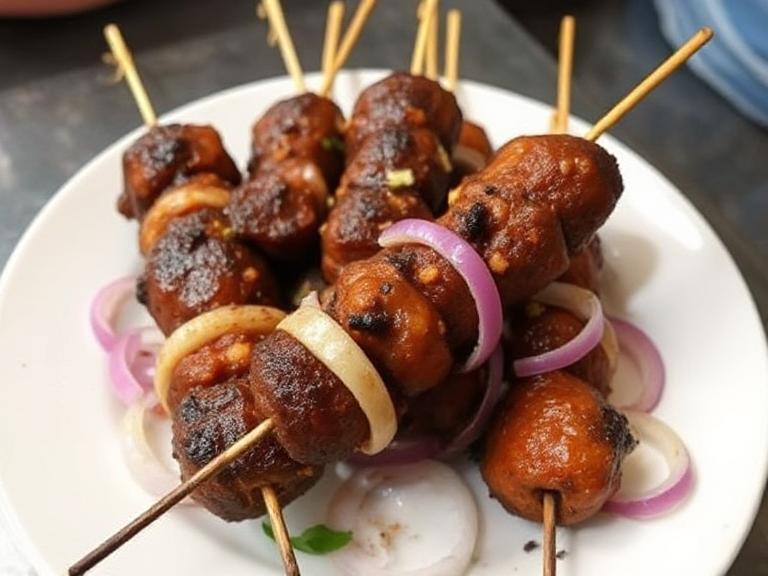
8. Rice and Stew with Fish (₦1,200-₦1,500)
Simple white rice with Nigerian stew and fried fish remains a budget staple. The combination is filling and flavorful.
Where to Find It: Neighborhood restaurants in Gwarinpa, Garki, and Asokoro. Mama Puts often serve this daily.
Why It's Great: Straightforward, satisfying, and hard to mess up. The stew's richness makes plain rice delicious.
Pro Tip: Request extra stew (often free or minimal charge). Specify fish size to control price.
9. Moi Moi and Bread (₦600-₦1,000)
This breakfast or snack combination offers protein and carbs at minimal cost. Fresh moi moi with soft bread creates a satisfying meal.
Where to Find It: Morning vendors, bakeries, and breakfast spots throughout Abuja. Gwarinpa and Garki have numerous options.
Why It's Great: Protein-rich, gentle on the stomach, and portable. Perfect for busy mornings.
Pro Tip: Buy fresh in the morning. Moi moi quality declines throughout the day.
10. Spaghetti and Stew (₦1,000-₦1,400)
Nigerian-style spaghetti with rich tomato stew offers Italian-inspired comfort at local prices.
Where to Find It: Neighborhood restaurants and Mama Puts throughout Abuja, particularly popular in Gwarinpa.
Why It's Great: Filling, flavorful, and often includes vegetables and protein in the stew.
Pro Tip: Request "designer spaghetti" for extra vegetables and protein. Lunch hours guarantee fresh preparation.
11. Yam and Egg Sauce (₦800-₦1,200)
Boiled or fried yam with egg sauce provides substantial nutrition at budget prices. The combination is filling and satisfying.
Where to Find It: Morning and lunch spots throughout Abuja, particularly in residential areas of Gwarinpa and Garki.
Why It's Great: Yam provides lasting energy, eggs add protein. Simple but effective.
Pro Tip: Fried yam costs more than boiled but offers better flavor. Specify egg quantity in sauce.
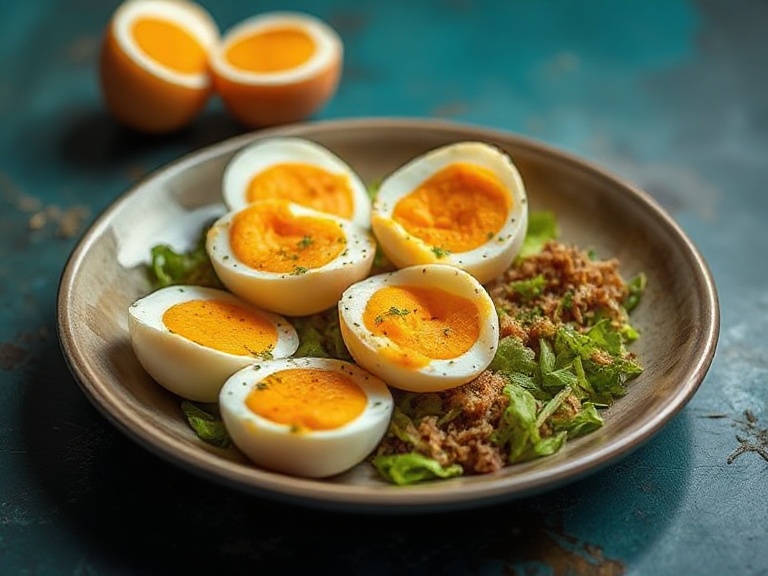
12. Shawarma (₦1,000-₦1,500)
A well-stuffed shawarma makes a complete meal. Meat, vegetables, and sauce wrapped in flatbread provides balanced nutrition.
Where to Find It: Shawarma spots throughout Abuja, particularly in Wuse 2, Gwarinpa, and near shopping areas.
Why It's Great: Portable, filling, and available most hours. Good balance of protein and vegetables.
Pro Tip: Specify extra vegetables (usually free). Avoid peak hours for fresher ingredients.
Strategies for Budget Eating in Abuja
Timing Matters
Breakfast (6-9 AM): Cheapest meal of the day. Fresh preparations and lower prices.
Lunch Specials (12-2 PM): Many restaurants offer discounted lunch combos. Take advantage of these deals.
Early Dinner (5-6 PM): Some spots offer early bird specials. Food is fresh from lunch service.
Avoid Peak Hours: Prices sometimes increase during busy periods. Off-peak dining saves money.
Location Strategy
Residential Areas: Gwarinpa, Garki, and Wuse 1 offer better value than commercial districts.
University Vicinities: Areas near educational institutions feature budget-focused eateries.
Market Areas: Food stalls in and around markets provide excellent value.
Avoid Tourist Zones: Maitama and upscale Wuse 2 areas charge premium prices.
Ordering Smart
Portion Awareness: Nigerian portions are often generous. One plate might satisfy two light eaters.
Combo Deals: Ask about combinations. Many restaurants offer better value for meal combos.
Skip Drinks: Bring your own water or drink. Restaurant beverage markups are significant.
Share Appetizers: If dining with others, share starters to reduce individual costs.
Finding the Best Spots
Follow Crowds: Long lines indicate quality and value. Locals know where to eat well cheaply.
Ask Locals: Residents know the best budget spots. Don't hesitate to ask for recommendations.
Try Mama Puts: These no-frills eateries offer authentic food at genuine local prices.
Market Exploration: Markets host numerous food vendors with unbeatable prices.
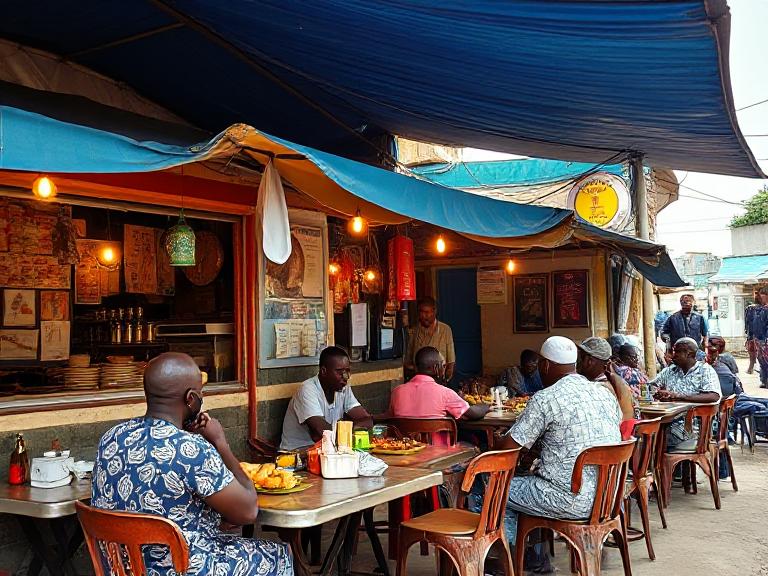
Maximizing Nutrition on a Budget
Protein Priorities
Eggs: Cheapest protein source. Egg dishes offer excellent value.
Beans: High protein, very affordable, and filling.
Fish: Often cheaper than meat while providing quality protein.
Chicken: Budget-friendly when choosing local rather than imported.
Vegetable Value
Seasonal Produce: Costs less and tastes better. Ask what's in season.
Leafy Greens: Nutritious and inexpensive. Soups with vegetables add value.
Plantains: Provide natural sweetness and energy affordably.
Carbohydrate Choices
Rice: Versatile and filling. White rice is cheapest.
Yam: Provides lasting energy. Boiled yam costs less than fried.
Swallows: Amala, eba, and fufu offer filling carbs at low prices.
Bread: Affordable carb source, especially local bakery bread.
Common Budget Eating Mistakes
Avoid These Pitfalls
Skipping Meals: Leads to overeating later and poor food choices.
Impulse Buying: Plan meals rather than grabbing whatever's convenient.
Brand Loyalty: Don't assume expensive means better. Many budget spots offer superior quality.
Ignoring Combos: Meal deals often provide better value than ordering items separately.
Peak Hour Dining: Crowds mean longer waits and sometimes higher prices.
Weekly Budget Meal Planning
Sample ₦10,000 Weekly Plan
Monday: Akara and pap (₦700) + Rice and stew (₦1,200) = ₦1,900
Tuesday: Beans and plantain (₦1,000) + Indomie special (₦1,000) = ₦2,000
Wednesday: Amala and ewedu (₦1,300) + Moi moi and bread (₦800) = ₦2,100
Thursday: Jollof rice with chicken (₦1,400) + Akara and pap (₦700) = ₦2,100
Friday: Suya (₦1,500) + Yam and eggs (₦1,000) = ₦2,500
Weekend: Fried rice (₦1,400) + Shawarma (₦1,200) = ₦2,600
Total: ₦13,200 for 14 meals (₦942 per meal average)
Adjustment Strategies
Reduce Costs: Choose more beans, yam, and egg meals. Skip meat occasionally.
Increase Budget: Add more protein, try different restaurants, include drinks.
Balance Nutrition: Ensure variety across the week. Don't eat the same thing daily.
Safety and Quality on a Budget
Don't Compromise On
Food Safety: Choose clean establishments regardless of price.
Freshness: Avoid food sitting out for hours, even if cheaper.
Hygiene: Watch preparation areas. Clean kitchens matter more than fancy decor.
Proper Cooking: Ensure meats are cooked through, especially chicken and pork.
Red Flags to Watch
- Flies around food
- Unclean preparation surfaces
- Food at unsafe temperatures
- Suspicious smells
- Dirty utensils or plates
Making Budget Eating Enjoyable
Mindset Shifts
Value Over Price: Focus on what you get for your money, not just the cost.
Adventure: Treat budget eating as exploration, discovering hidden gems.
Gratitude: Appreciate access to diverse, affordable food.
Community: Budget spots often have better atmosphere and authentic local experience.
Enhancing the Experience
Bring Friends: Shared meals feel more special and allow trying multiple dishes.
Explore New Areas: Turn budget eating into neighborhood exploration.
Learn Recipes: Ask vendors about preparation. Many love sharing cooking tips.
Document Discoveries: Keep notes on great budget finds to revisit.
Your Budget Eating Journey
Eating well on a budget in Abuja isn't about sacrifice—it's about smart choices, local knowledge, and appreciation for authentic Nigerian food culture. The meals under ₦1,500 aren't inferior versions of expensive dishes; they're often more authentic, prepared by people who've perfected their recipes over years.
Start with these 12 meals, explore the neighborhoods mentioned, and develop your own budget eating strategy. You'll discover that some of Abuja's best food experiences come at the lowest prices, served by people who cook with pride and care regardless of what they charge.
Your budget doesn't have to limit your culinary adventure—it just redirects it toward the authentic, local experiences that make Abuja's food scene special.
Looking for more budget-friendly dining tips in Abuja? Follow AbujaEats for affordable restaurant recommendations, money-saving strategies, and the best value meals across Nigeria's capital.
Never Miss a Food Review
Join our community of food lovers and get weekly restaurant recommendations, exclusive dining tips, and the latest food news in Abuja.
Own a Restaurant in Abuja?
Get featured on AbujaEats and reach food lovers across the city.
List Your Restaurant